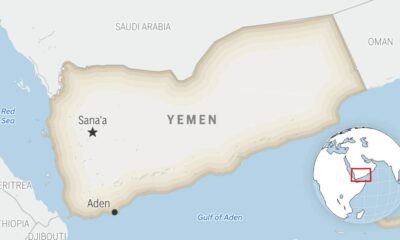Tools & Platforms
GCC Travel Tech Revolution: Autonomous Vehicles, AI, and Luxury Pilgrimage Services Set to Transform Middle East Tourism in 2025

Saturday, July 26, 2025
As the Middle East continues to invest heavily in its travel and tourism sectors, technology has become a key enabler of this transformation. By 2025, the region is poised to become a global leader in travel technology, with innovations that are set to revolutionize how people travel, experience destinations, and interact with transportation networks. The Middle East’s embrace of cutting-edge technology is part of a broader vision to position the region as a major player on the world stage for travel, culture, and economic diversification. Saudi Arabia’s Vision 2030, the UAE’s Smart Cities initiative, and Qatar’s push toward tourism diversification are driving investments that will ultimately enhance every aspect of the travel experience.
| Category | Company/Initiative | Technology/Development | Details |
|---|---|---|---|
| Autonomous Vehicles | WeRide (China) | Robotaxi Services | Expansion of autonomous vehicle services into the UAE and Saudi Arabia, with commercial operations expected by late 2025. |
| Pony.ai (China) | Robotaxi Services | Trials of autonomous taxis in Dubai and Saudi Arabia, targeting full commercial deployment by 2025-2026. | |
| Baidu (China) | Autonomous Vehicles | Partnership with UAE-based Autogo to deploy robotaxi services in Abu Dhabi, set for trials by the end of 2025. | |
| Artificial Intelligence (AI) | Humain (Saudi Arabia) | AI Infrastructure | Aiming to position Saudi Arabia as a leader in AI, developing AI services and infrastructure for various industries, including travel. |
| Airline Technology | Riyadh Air (Saudi Arabia) | Digital and Sustainable Air Travel | Backed by Saudi Arabia’s Public Investment Fund, focusing on digital technology and sustainability, with plans to connect over 100 destinations by 2030. |
| Travel Platform | Viavii (Jordan) | Experiential Travel Platform | AI and machine learning-powered platform connecting travelers with local hosts for personalized experiences across the Middle East. |
| Travel Metasearch | Wego (Singapore/UAE) | Metasearch Engine | Integration with over 5,000 hotels, providing a comprehensive platform for booking flights and accommodations, continually innovating in travel tech. |
| Pilgrimage Technology | Umrahme (Saudi Arabia) | Digital Pilgrimage Platform | A platform for managing Umrah pilgrimage, including accommodation booking, visa processing, and travel tips, aimed at streamlining the pilgrimage experience. |
| Sustainable Travel | Red Sea Project (Saudi Arabia) | Eco-friendly Resorts & Infrastructure | Developing luxury resorts powered by renewable energy and promoting eco-friendly travel practices, focusing on sustainable tourism. |
1. AI-Powered Travel Services: Personalizing Every Step of the Journey
Artificial intelligence (AI) has already become an integral part of the travel sector worldwide, and the Middle East is no exception. By 2025, AI-driven solutions will play an even larger role in reshaping the way travelers plan, book, and experience their trips. In the UAE, Qatar, and Saudi Arabia, several companies are integrating AI-powered tools into travel booking platforms, customer service, and real-time assistance.
One of the most notable developments in AI travel technology is the use of personalized travel recommendations. Companies like Wego (a travel metasearch engine) and Viavii (an experiential travel platform) are leveraging AI and machine learning to offer travelers tailored itineraries based on their preferences, travel history, and current trends. This level of personalization provides a much more refined travel experience, helping travelers to discover new destinations, find hidden gems, and make more informed decisions about their trips.
Airlines are also incorporating AI technology to enhance the passenger experience. For instance, Emirates Airlines has rolled out an AI-based chatbot to assist customers with bookings, check-in, and flight status updates. This is particularly useful during peak travel periods, reducing wait times and improving operational efficiency.
Furthermore, AI-driven systems are now being used for real-time updates on flight status, baggage handling, and even predicting delays or changes to itineraries. As AI becomes more integrated into the region’s travel infrastructure, travelers will benefit from smoother, more personalized journeys, allowing them to focus on enjoying their trips rather than navigating the complexities of travel logistics.
2. Smart Airports: Enhancing Efficiency and Passenger Comfort
The concept of smart airports is quickly gaining traction across the Middle East, and by 2025, most major airports in the region will incorporate digital solutions to create a seamless, efficient experience for passengers. In the UAE, the Dubai International Airport (DXB) has long been a pioneer in the use of technology to streamline the passenger journey. DXB is working to enhance its use of biometric facial recognition technology, AI-powered security systems, and real-time baggage tracking.
One of the key developments expected by 2025 is the widespread implementation of biometric systems that allow travelers to use their facial features or fingerprints to check in, pass through security, and board flights. This eliminates the need for boarding passes and reduces waiting times, making airports more efficient and accessible. Abu Dhabi International Airport is also implementing similar technologies to enhance passenger convenience and speed up the check-in process.
Additionally, airports in Saudi Arabia, including King Abdulaziz International Airport in Jeddah, are investing in digital solutions to improve passenger flow. From self-check-in kiosks to automated baggage drop-off points, these innovations are designed to reduce congestion and create a frictionless airport experience for travelers. AI-powered systems are also being used to predict potential bottlenecks at security checkpoints, allowing staff to redirect passengers to less busy areas.
Moreover, smart airports are incorporating digital signage and interactive kiosks to provide passengers with real-time information on flight status, gate changes, and other relevant updates. These systems ensure that travelers are well-informed at every stage of their journey, further enhancing convenience and customer satisfaction.
3. Autonomous Vehicles: Revolutionizing Transportation Networks
One of the most exciting developments in Middle Eastern travel technology is the rise of autonomous vehicles. The UAE, Saudi Arabia, and Qatar are leading the way in integrating self-driving cars and buses into their transportation networks, aiming to improve efficiency, reduce congestion, and provide passengers with a new level of convenience.
In Dubai, the Roads and Transport Authority (RTA) has partnered with WeRide, a Chinese autonomous vehicle company, to introduce robotaxi services in the city. The autonomous taxis are expected to provide a safer and more convenient mode of transport, particularly during peak hours when traffic congestion is a significant issue. The service, which is set to launch in 2025, will provide a seamless travel experience for visitors and residents alike, with passengers able to book rides using their smartphones.
Similarly, Pony.ai, another autonomous vehicle company, has also expanded its operations to the Middle East, with trials set to begin in Abu Dhabi and Riyadh. These vehicles will offer on-demand transport, allowing passengers to travel to their destinations without the need for human drivers. By 2025, autonomous vehicles are expected to play a central role in reshaping urban mobility in the region.
In addition to autonomous taxis, Saudi Arabia is investing in flying taxis or urban air mobility (UAM) solutions, with the goal of launching air taxis by 2026. These vehicles, powered by electric propulsion systems, will offer passengers a fast and environmentally friendly way to navigate congested urban areas.
4. Blockchain Technology for Secure Travel Transactions
Blockchain technology is making its mark on the Middle East travel industry in 2025. As one of the most secure and transparent technologies available, blockchain offers a solution to many of the challenges faced by travelers, including fraud prevention, secure payments, and identity verification.
Blockchain technology is being utilized to streamline the booking process, with travel platforms leveraging its secure ledger system to ensure that transactions are processed safely and efficiently. Saudi Arabia’s PIF-backed travel initiatives, including those related to digital visas, are utilizing blockchain to provide secure, tamper-proof systems for booking accommodations, flights, and car rentals.
Furthermore, blockchain can enhance travel security by allowing travelers to store their personal information in digital wallets. This eliminates the need for physical passports or paper records and allows travelers to prove their identity securely through blockchain-based certificates.
As blockchain technology becomes more widely adopted, it is expected to significantly reduce the risks of fraud and streamline payment systems, further enhancing the security and efficiency of travel transactions.
5. Sustainable Travel Technologies: Reducing Environmental Impact
Sustainability is at the forefront of travel technology developments in the Middle East. With growing concerns about climate change and environmental degradation, the region is increasingly focused on sustainable tourism solutions that minimize the carbon footprint of the travel industry.
By 2025, electric vehicles (EVs) are expected to become a common mode of transportation for tourists and residents alike. Countries like the UAE, Saudi Arabia, and Qatar are implementing EV infrastructure to ensure that tourists can travel sustainably throughout their visits. The development of charging stations for electric cars in cities and key tourist attractions will encourage travelers to opt for greener transportation options.
The Middle East is also focusing on sustainable aviation, with several airlines, including Emirates Airlines, exploring the use of sustainable aviation fuel (SAF) to reduce emissions. Additionally, airports in the region are implementing eco-friendly practices, such as energy-efficient terminals, solar power systems, and waste-reduction initiatives, to promote sustainability across the travel sector.
6. Digital Health Passports and Smart Services for Pilgrims
In light of the COVID-19 pandemic, digital health passports have become a critical component of travel in the Middle East. These digital health certificates allow travelers to store and share their vaccination records, test results, and other health-related documents in a secure, easily accessible format. Saudi Arabia, in particular, has implemented digital health passports for pilgrims traveling to Makkah and Madinah for Hajj and Umrah.
The use of digital health passports ensures that pilgrims and tourists comply with health and safety protocols, making travel safer and more efficient. In addition, smart services such as virtual reality (VR) tours of religious sites and AI-powered pilgrim assistance systems are improving the overall pilgrimage experience.
7. The Rise of Digital Travel Agencies and Booking Platforms
The traditional travel agency model is evolving in the Middle East, with digital platforms offering travelers personalized, AI-powered services. Companies like Wego and Viavii are providing travelers with customized itineraries, real-time booking options, and seamless payment solutions. These platforms use machine learning algorithms to understand individual preferences and suggest personalized travel experiences based on historical data and user input.
The shift toward digital booking platforms is expected to continue, as more travelers prefer the convenience of managing their trips through mobile apps and online services. These platforms also provide access to comprehensive information about destinations, accommodations, and activities, helping travelers make informed decisions.
8. Tourism Data and Analytics
Tourism data and analytics are becoming increasingly important for both travelers and service providers in the Middle East. Governments and tourism boards are using data analytics to predict tourist trends, identify emerging markets, and optimize travel infrastructure. By leveraging big data, the region is improving its ability to forecast tourism demand, enhance service delivery, and reduce overcrowding at popular tourist destinations.
Tools & Platforms
Godfather of AI Geoffrey Hinton warns AI to create ‘massive unemployment’, but only these will be hardest hit

Geoffrey Hinton, often called the “godfather of AI,” warned that artificial intelligence will trigger “massive unemployment and a huge rise in profits,” further deepening inequality between the rich and the poor. In a recent interview with the Financial Times, the Nobel Prize winner and former Google scientist said AI will be used by the wealthy to cut jobs and maximize profits.“What’s actually going to happen is rich people are going to use AI to replace workers,” Hinton said. “It’s going to create massive unemployment and a huge rise in profits. It will make a few people much richer and most people poorer. That’s not AI’s fault, that is the capitalist system.”During the interview, Geoffrey Hinton said industries that rely on routine tasks will be hardest hit, while highly skilled roles and healthcare could benefit. “If you could make doctors five times as efficient, we could all have five times as much health care for the same price,” he said in an earlier interview.
Godfather of AI’s disagreement with Sam Altman
Hinton also dismissed OpenAI CEO Sam Altman’s idea of a universal basic income, arguing it “won’t deal with human dignity” or replace the sense of value people get from work.A survey from the New York Fed recently found that companies using AI are more likely to retrain workers than fire them, though layoffs are expected to rise.Hinton reiterated concerns about AI’s risks, saying there is a 10% to 20% chance of the technology wiping out humanity after the emergence of superintelligence. He also warned AI could be misused to create bioweapons, adding that while China is taking the threat seriously, the Trump administration has resisted tighter regulation.“We don’t know what is going to happen, we have no idea, and people who tell you what is going to happen are just being silly,” he said. “We are at a point in history where something amazing is happening, and it may be amazingly good, and it may be amazingly bad.”
Geoffrey Hinton on leaving Google
Geoffrey Hinton also explained why he left Google in 2023, rejecting reports that he quit to speak more freely about AI’s risks. “I left because I was 75, I could no longer program as well as I used to, and there’s a lot of stuff on Netflix I haven’t had a chance to watch,” he said.While he mostly uses AI for research, Hinton admitted OpenAI’s ChatGPT even played a role in his personal life. He revealed that a former girlfriend used the chatbot “to tell me what a rat I was” during their breakup.“I didn’t think I had been a rat, so it didn’t make me feel too bad,” he quipped.
Tools & Platforms
Sam Altman or Elon Musk: AI godfather Geoffrey Hinton’s 6-word reply on who he trusts more

When asked to choose who he trusts more between Tesla CEO Elon Musk and OpenAI chief executive Sam Altman, AI “godfather” Geoffrey Hinton offered a different kind of answer. The choice seemed so difficult that Hinton didn’t use an analogy from science. Instead, he recalled a quote from Republican Senator Lindsey Graham, when asked to pick between two presidential candidates.He remembered a moment from the 2016 presidential race when Graham was asked to choose between Donald Trump or Ted Cruz. Graham’s response, delivered with a wry honesty, was a line Hinton had never forgotten: “It’s like being shot or poisoned.”
Hinton’s warning on potential of AI technology in destruction
Hinton was speaking to The Financial Times during an interview where he sounded the alarm about AI’s potential dangers. Once a key figure in accelerating AI development, Hinton has shifted to expressing deep concerns about its future. He believes that AI poses a grave threat to humanity, arguing that the technology could soon help an average person create bioweapons.“A normal person assisted by AI will soon be able to build bioweapons and that is terrible,” Hinton said, adding, “Imagine if an average person in the street could make a nuclear bomb.”During a two-hour interview, Hinton discussed various topics, including AI’s “nuclear-level” threats, his own use of AI tools, and even how a chatbot contributed to his recent breakup. He also recently warned that AI could soon surpass human abilities, including the power to manipulate emotions by learning from vast datasets to influence feelings and behaviors more effectively than people.Hinton’s concerns stem from his belief that AI is genuinely intelligent. He argues that “by any definition of intelligence, AI is intelligent.” Using several analogies, he explained that an AI’s experience of reality is not so different from a human’s.“It seems very obvious to me. If you talk to these things and ask them questions, it understands,” Hinton stated. He added that there is “very little doubt in the technical community that these things will get smarter.”
Tools & Platforms
Anthropic’s Claude restrictions put overseas AI tools backed by China in limbo

An abrupt decision by American artificial intelligence firm Anthropic to restrict service to Chinese-owned entities anywhere in the world has cast uncertainty over some Claude-dependent overseas tools backed by China’s tech giants.
After Anthropic’s notice on Friday that it would upgrade access restrictions to entities “more than 50 per cent owned … by companies headquartered in unsupported regions” such as China, regardless of where they are, Chinese users have fretted over whether they could still access the San Francisco-based firm’s industry-leading AI models.
While it remains unknown how many entities could be affected and how the restrictions would be implemented, anxiety has started to spread among some users.
Do you have questions about the biggest topics and trends from around the world? Get the answers with SCMP Knowledge, our new platform of curated content with explainers, FAQs, analyses and infographics brought to you by our award-winning team.
Singapore-based Trae, an AI-powered code editor launched by Chinese tech giant ByteDance for overseas users, is a known user of OpenAI’s GPT and Anthropic’s Claude models. A number of users of Trae have raised the issue of refunds to Trae staff on developer platforms over concerns that their access to Claude would no longer be available.
Dario Amodei, CEO and cofounder of Anthropic, speaks at the International Network of AI Safety Institutes in San Francisco, November 20, 2024. Photo: AP alt=Dario Amodei, CEO and cofounder of Anthropic, speaks at the International Network of AI Safety Institutes in San Francisco, November 20, 2024. Photo: AP>
A Trae manager responded by saying that Claude was still available, urging users not to consider refunds “for the time being”. The company had just announced a premium “Max Mode” on September 2, which boasted access to significantly more powerful coding abilities “fully supported” by Anthropic’s Claude models.
Other Chinese tech giants offer Claude on their coding agents marketed to international users, including Alibaba Group Holding’s Qoder and Tencent Holdings’ CodeBuddy, which is still being beta tested. Alibaba owns the South China Morning Post.
ByteDance and Trae did not respond to requests for comment.
Amid the confusion, some Chinese AI companies have taken the opportunity to woo disgruntled users. Start-up Z.ai, formerly known as Zhipu AI, said in a statement on Friday that it was offering special offers to Claude application programming interface users to move over to its models.
Anthropic’s decision to restrict access to China-owned entities is the latest evidence of an increasingly divided AI landscape.
In China, AI applications and tools for the domestic market are almost exclusively based on local models, as the government has not approved any foreign large language model for Chinese users.
Anthropic faced pressure to take action as a number of Chinese companies have established subsidiaries in Singapore to access US technology, according to a report by The Financial Times on Friday.
Anthropic’s flagship Claude AI models are best known for their strong coding capabilities. The company’s CEO Dario Amodei has repeatedly called for stronger controls on exports of advanced US semiconductor technology to China.
Anthropic completed a US$13 billion funding round in the past week that tripled its valuation to US$183 billion. On Wednesday, the company said its software development tool Claude Code, launched in May, was generating more than US$500 million in run-rate revenue, with usage increasing more than tenfold in three months.
The firm’s latest Claude Opus 4.1 coding model achieved an industry-leading score of 74.5 per cent on SWE-bench Verified – a human-validated subset of the large language model benchmark, SWE-bench, that is supposed to more reliably evaluate AI models’ capabilities.
This article originally appeared in the South China Morning Post (SCMP), the most authoritative voice reporting on China and Asia for more than a century. For more SCMP stories, please explore the SCMP app or visit the SCMP’s Facebook and Twitter pages. Copyright © 2025 South China Morning Post Publishers Ltd. All rights reserved.
Copyright (c) 2025. South China Morning Post Publishers Ltd. All rights reserved.
-

 Business1 week ago
Business1 week agoThe Guardian view on Trump and the Fed: independence is no substitute for accountability | Editorial
-
Tools & Platforms4 weeks ago
Building Trust in Military AI Starts with Opening the Black Box – War on the Rocks
-

 Ethics & Policy1 month ago
Ethics & Policy1 month agoSDAIA Supports Saudi Arabia’s Leadership in Shaping Global AI Ethics, Policy, and Research – وكالة الأنباء السعودية
-

 Events & Conferences4 months ago
Events & Conferences4 months agoJourney to 1000 models: Scaling Instagram’s recommendation system
-

 Jobs & Careers2 months ago
Jobs & Careers2 months agoMumbai-based Perplexity Alternative Has 60k+ Users Without Funding
-

 Education2 months ago
Education2 months agoVEX Robotics launches AI-powered classroom robotics system
-

 Podcasts & Talks2 months ago
Podcasts & Talks2 months agoHappy 4th of July! 🎆 Made with Veo 3 in Gemini
-

 Education2 months ago
Education2 months agoMacron says UK and France have duty to tackle illegal migration ‘with humanity, solidarity and firmness’ – UK politics live | Politics
-

 Funding & Business2 months ago
Funding & Business2 months agoKayak and Expedia race to build AI travel agents that turn social posts into itineraries
-

 Podcasts & Talks2 months ago
Podcasts & Talks2 months agoOpenAI 🤝 @teamganassi






















